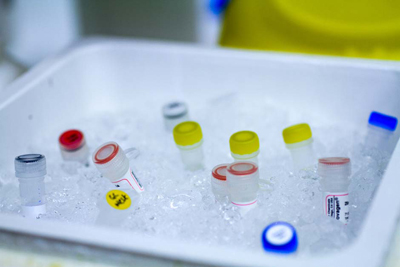Bacterial plasmids are an essential tool in modern molecular biology research and there are many different plasmids used for various purposes, including basic cloning, expression in a range of cell types and mutagenesis of inserts. Ensuring the fidelity of these inserts is critical for all subsequent studies. By undertaking DNA sequencing on your plasmids, we can rapidly provide the key information that enables you to move forward with your research.
We consider plasmids of up to about 20kb in length to be ‘standard’ and we recommend our standard sequencing reaction protocol for such plasmids. If your plasmid is larger than this, you should select our "Large Template" option, which is specifically designed to give improved results with large plasmids.
Please review the information below prior to submission so that you get the best out of the sequencing process.


